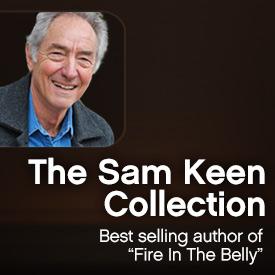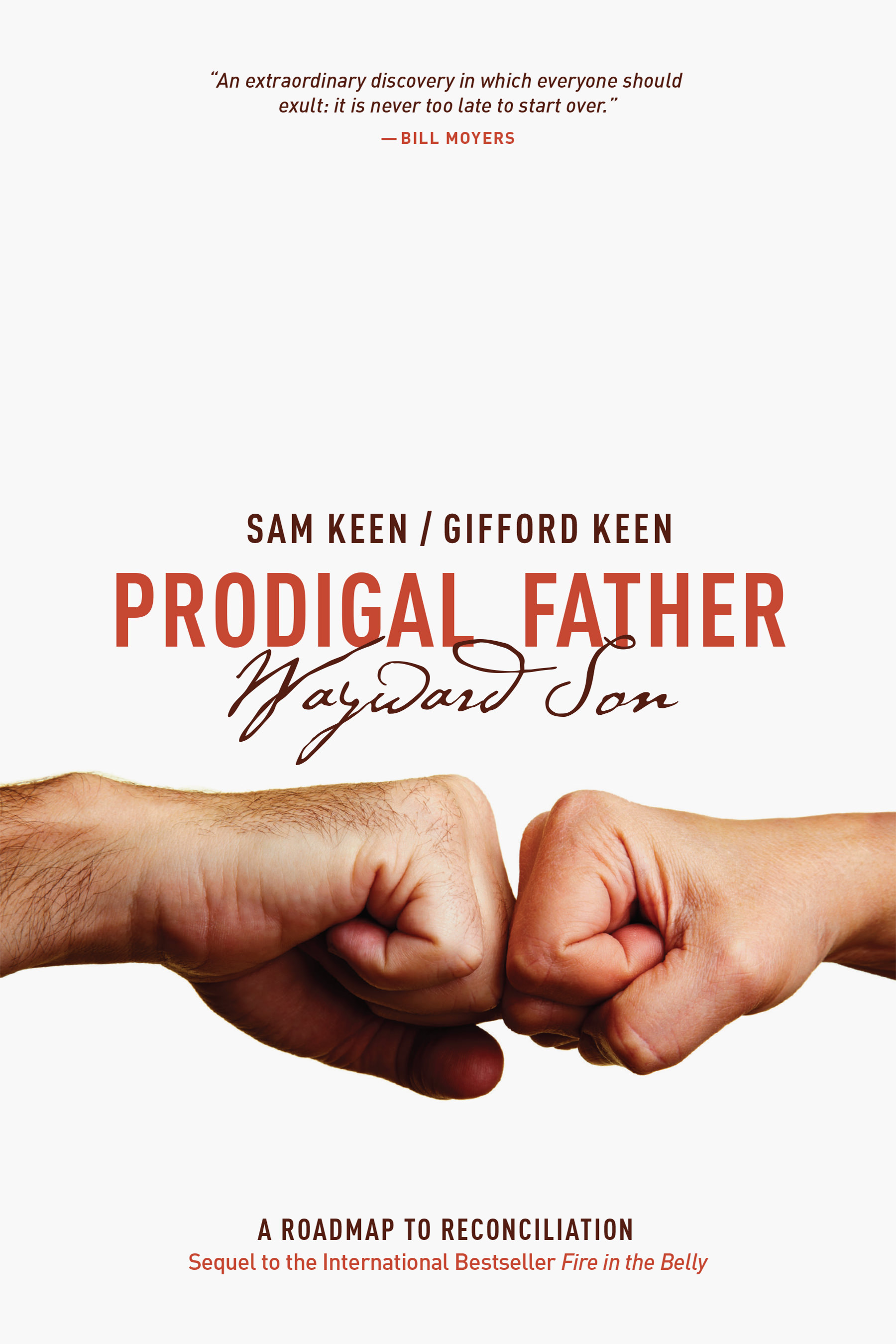Absence of G-D, Q&A
 In The Absence of God: Dwelling in the Presence of the Sacred
In The Absence of God: Dwelling in the Presence of the Sacred
Sam Keen. Q and A.
Q. You strike out with a two edged sword against both neo-atheists such as Richard Dawkins, Sam Harris and Christopher Hitchens, all of whose books have been on the NY Times best seller list in the past months, and the defenders of religious orthodoxy. Why?
A. To begin with they are both dogmatic. “True Believers” threaten us with damnation if we don’t believe in their particular brand of “revealed Truth.” The neo-Atheists insist that all forms of monotheism, even the most liberal and progressive, are murderous, intolerant and irrational and they argue that we should all become rational atheists. Admittedly, a great deal of religion is unintelligent at best and violent at worst, but that doesn’t mean we should abandon the jewel in the lotus because it floats in polluted water..
Q. You argue that we need to return to the root meaning of religion which involves the experience of elemental emotions. What are these emotions?
A. We might begin with the experience of wonder which is the wellspring of both religion and philosophy. D.H. Lawrence got it exactly right—“There is a sixth sense, the religious sense, the sense of wonder.” Why should there be something rather than nothing? Where did I come from? What is the meaning of my life?
Q. What are the other elemental emotions?
A. To name only a few: gratitude, compassion, joy, humility, reverence, trust and open mindless.
Q. These emotions aren’t the ones we usually associate with the average CEO or NFL quarterback. They don’t mix well with a drive for success.
A. Exactly, that is why they have been repressed in modern societies and must be recovered. Secular culture teaches us to be self-assertive, hard driving, ambitious, aggressive, prideful and patriotic.
Q. Are you saying we must abandon these quintessential American virtues in order to be religious?
A. At the very least, we have to acknowledge that there is a radical difference between a secular and a sacred manner of being in the world. In the 21st century we will have to learn to cherish all creatures in the commonwealth of sentient beings if we are going to preserve our fragile environment,
Q. Among other things, you propose that we declare a moratorium on all religious word and undertake “a verbal fast.” What is the point of this?
A. To transform religion we need to recover its mystical element. Learn to be silent. Refrain from using the tired, old language and explore new metaphors, symbols and poetic ways of expressing what it means to dwell in the presence of the sacred. We need to take religion away from the clergy and the theologian and give it back to the singers and poets. End the pious arrogance of claiming to know the unknowable.
Q. Give me an example of some new metaphors.
A. Instead of God: The Ground of Being. The G-d Beyond God. (Tillich). The Self Surpassing Surpasser of All (Hartshorne) The Cosmic DNA. The Big Bang and Blossoming. The Particle Rancher and Wave Rider. The Lord of Fractals. The Universal Unknown Subject of our Insatiable Longing. Central Casting. Etc
Q. I am not sure I could pray to The Cosmic DNA.
A. Maybe not, but it will stretch our imagination to think about The Ever Evolving One and Many (formerly known as God) in new ways.
Q. You refer to yourself as a reverent agnostic. How does that differ from being an atheist?
A. I don’t know enough to be an atheist. I don’t believe in the kind of God I hear about on Sunday morning television, or the God of Jihad and Country, and I don’t know how to think about the unknowable intention, energy, mind, purpose that unites the myriads atoms and galaxies into a single timeless universe. So I remain, happily, ignorant of the totality. But I do have a sense of being at home in this strange world and dwelling in a sacred place.
Q. Rumor has it your wife is a minister in United Congregational Church. Does your agnostic version of faith bring you into conflict with her more traditional notion of religion?
A. Hers is a progressive type of Christianity that is more concerned with social justice and establishing a caring community than it is with orthodox belief. Neither one of us takes the creeds very seriously. We enjoy frequent disagreements. I am not a member of her church, but I attend from time to time and am warmly welcomed. And, after all is said and done, religion is more about loving dialogue than it is about right ideas.




